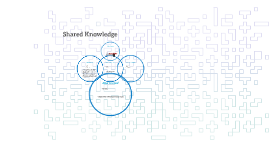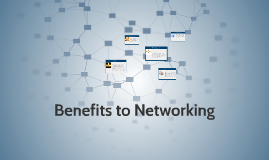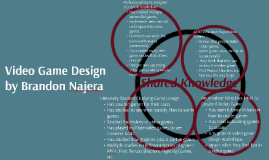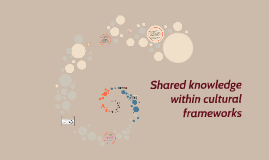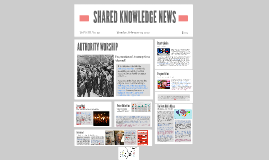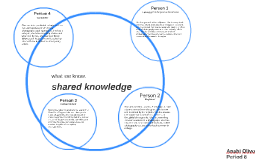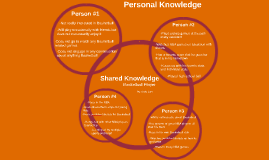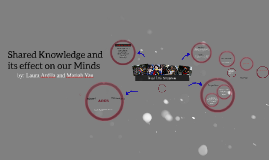SHARED KNOWLEDGE
Transcript: The News Media Biases We live in a world in which we must trust experts to justify many of our knowledge claims. For instance, most laypeople simply do not have the means to directly prove that the sun is 93 million miles from the earth. Instead, we must rely on experts. Unfortunately, experts are human and make mistakes. So, how can we trust them and what can we do to protect ourselves from inexpert experts? It is dangerous to fall into authority worship--uncritically accepting something as true because an authority or expert says it is. Because authorities are not the original source of knowledge nothing should be accepted as true just because someone else says so. Instead, be sure to validate "expert" claims with evidence and argument. Groupthink is a form of peer pressure in which people of a particular group are expected to think the same way. It is widespread in politics and business where leaders expect their subordinates to "fall in line" with their own viewpoints. However, groupthink occurs in many other social groups--even among scholars and scientists. Have you ever experienced groupthink? $1.25 Monday, February 19, 2020 First, we need to know that experts are notoriously bad at predicting future events (especially in the human sciences!). We should carefully track records of experts who have not had a history of accuracy and be somewhat skeptical of all claims made about future outcomes. Secondly, we have to consider the experts "range of competence." Far too often we trust experts in one field to provide valuable information about knowledge in another. Be careful who you put your faith in. Ask yourself "is there any reason that this person should have a privileged insight into this topic?" Most importantly, we need to consider these five aspects: credentials, evidence, corroboration (that their claims are supported by other experts), track record (that they have a history of honesty and reliability), neutrality (that they do not have bias such as strong religious or political affiliations or a connection to big business). AUTHORITY WORSHIP Pieces of the picture are simply not enough The pitfalls of peer pressure Questioning authority is key SHARED KNOWLEDGE NEWS Vol XCIII, No. 311 Unquestioned Assumptions Abound! Fragmentation Sharing knowledge is not about giving people something, or getting something from them. That is only valid for information sharing. Sharing knowledge occurs when people are genuinely interested in helping one another develop new capacities for action; it is about creating learning processes. Peter Senge Power Distortion Shaping our world Power distortion occurs when a government, corporation, or other powerful and influential organization manipulates or distorts knowledge for their own gain. Power can easily influence the content of knowledge, the direction of research, and people's exposure to knowledge (via censorship and media control). We need to be aware of who controls the messages that we consume each day. And, more importantly, what their agenda or vested interest (an ulterior motive for making a claim) in that knowledge actually is. Can you provide examples of how an organization many influence and/or distort people's beliefs or access to knowledge? News media plays a key role in shaping our picture of the world. In some countries, however, news outlets are controlled by governments and in others, "media moguls"--who are in the business of making money-- have a disproportionate influence on public opinion. Given this, it is hardly surprising that many people treat the news with suspicion and question its objectivity. There are two main types of media bias: agenda setting (the selection of stories) and framing (their treatment). Sensationalism bias is the media's tendency to focus on the most dramatic stories rather than choose the most important ones. Why do we cover the story of one child being rescued from a fire when 1.2 million people die of malaria each year? Bad news bias is the media's habit of focusing on bad news rather than good news. This gives people an unfairly pessimist view of the state of the plant and humankind. It also fosters a climate of fear and mistrust. National bias is the manner in which the news covers stories through the lens of their own national interests. This gives a disproportionate amount of coverage to the most powerful and most developed countries--especially Western nations--and diminishes the stories that come from smaller or poorer nations. Framing is concerned with the presentation of a story and the manipulation of visuals and words to impact the audience. The way the media choose to contextualize the story will strongly influence the way the audience sees the story. Though we referred to "the War in Iraq" the Arab journalists referred to it as the "War ON Iraq." The Internet When the experts fail Groupthink Filter bubbles are the situation in which we exist in our own little "bubble" by surrounding ourselves with






